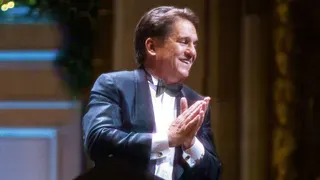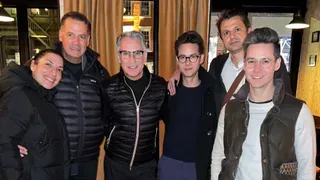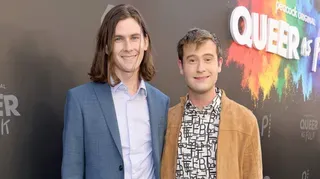November 2, 2023
Queering Cinema: 'Party Monster' Continues Its Stranglehold on Club Culture 20 Years Later
Matthew Creith READ TIME: 3 MIN.
"You'll love me, I promise."
This year has marked some fantastic anniversaries of projects that stand the test of time many years later. One such monumental achievement is the 2003 drama "Party Monster," lauded for its based-on-a-true-story background and for resurrecting the careers of its young stars. Celebrating twenty years of cult classic status, the biographical film about New York City club kids led by promoter Michael Alig holds up with time.
"Party Monster" stars former child star Macaulay Culkin as Alig, a once infamous club promoter from humble beginnings who made his name known in the New York City clubs in the 1980s and 1990s. Praised by many in the queer community for his strength as a young figure in the underground party scene of the era, Alig's star fell dramatically when he was convicted of killing drug dealer Angel Melendez (out actor Wilson Cruz). Drug abuse and non-stop partying led to bad decisions, which ultimately resulted in Alig's incarceration.
But before prison, drugs, and manslaughter became Michael Alig's reputation, his queer identity and rise amongst the partying elite made him a legend. The "King of the Club Kids" came to power through the mentorship of James St. James (Seth Green), whose book "Disco Bloodbath" provided the source material for the real events that surround "Party Monster." The 2003 film is significant for its tight screenplay and partnered direction by Fenton Bailey and Randy Barbato. The pair also helmed 1998's "Party Monster: The Shockumentary," a documentary on Michael Alig's rise and drug-addicted, murderous fall. Since then, they have gone on to produce "RuPaul's Drag Race."
"Party Monster" had its world premiere at the Sundance Film Festival but was not a hit when released to the general public in September 2003. The movie grossed a paltry $743,000 against a budget of $5 million. It was heavily marketed at the time as Macaulay Culkin's big comeback as a film lead, given that the young actor had not starred in a project for close to a decade prior.
The movie is also one of the rare instances where a famous straight actor played a young queer character with little redeeming qualities. Culkin threw himself into the role, strutting elaborate costumes and donning makeup to reimagine Alig's influential behavior. Since the release of "Party Monster," Culkin took parts in the NBC sitcom "Will & Grace," costarred alongside Mandy Moore and Jena Malone in "Saved!," and later appeared in Ryan Murphy's "American Horror Story: Double Feature."
Though the film wasn't a box office smash and the deranged true-to-life story didn't resonate with some audiences at the time of the film's release, "Party Monster" might be best remembered for its outstanding ensemble cast. A plethora of child actors turned dramatically trained performers appear in the film, many of whom currently rule television and movie culture some twenty years later. Starring opposite Culkin, Cruz, and Green are a who's who of talented actors, namely Chloë Sevigny, Natasha Lyonne, Dylan McDermott, Mia Kirshner, John Stamos, Daniel Franzese, and Wilmer Valderrama. Lyonne is currently starring in Peacock's "Poker Face" to much acclaim, Valderrama in "Mission: Impossible - Dead Reckoning Part One" and television's "NCIS," while Sevigny recently costarred in "The Girl From Plainville."
The legacy of "Party Monster" twenty years later puts Michael Alig's work and those he associated with back in the spotlight. Alig passed away in 2020 from a drug overdose, but his hard-partying lifestyle lives on in those who knew him well. His downfall and Melendez's murder might be the focus of the film, but the cultural impact the 1980s and 1990s had on New York City's underbelly remains interesting.
"Party Monster" is currently available on Peacock.







